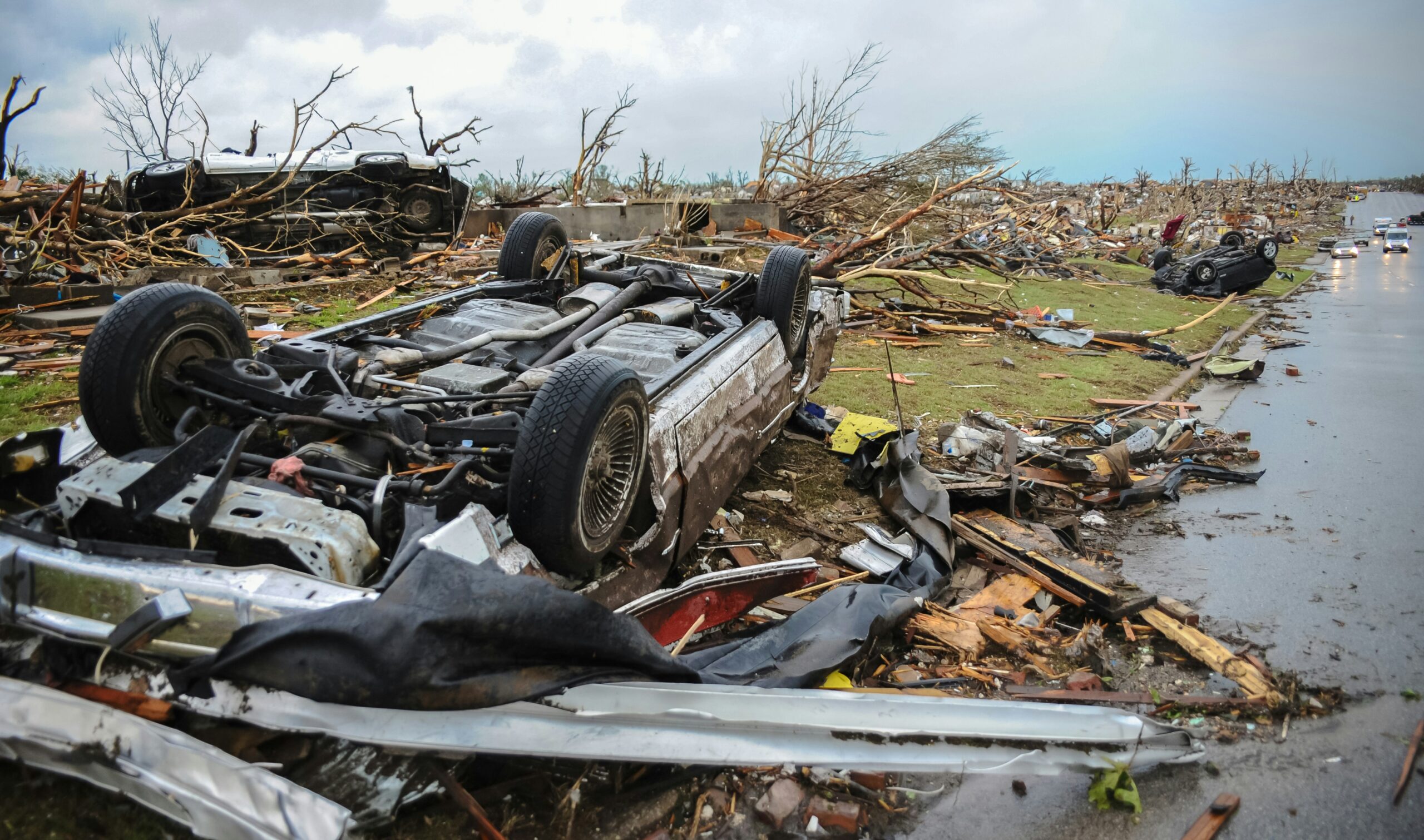In times of emergency, it can be overwhelming to maintain a sense of calm and organization within your family. However, with a few simple strategies, you can ensure everyone stays levelheaded and well-prepared for any unforeseen situation. From creating a designated emergency contact list to establishing clear communication channels, this article offers valuable advice on how to keep your family calm, informed, and organized during times of crisis. So, take a deep breath and read on to discover practical tips that will help you navigate emergencies with ease.
Create a Communication Plan
In the midst of an emergency, effective communication becomes vital for the safety and well-being of your family. Establishing a communication plan ahead of time can help ensure efficient communication during stressful situations.
Establish an Emergency Contact List
Creating an emergency contact list is an essential step in your communication plan. Compile a list of important contacts, including immediate family members, close friends, neighbors, and your family doctor. Be sure to include both their names and phone numbers.
Make multiple copies of this list and keep them in easily accessible locations, such as near the phone or in your emergency kit. It’s also a good idea to provide each family member with a copy to keep in their wallet or backpack.
Designate a Meeting Point
In case your family members are not together when an emergency occurs, it is crucial to have a designated meeting point. This meeting point should be a safe location away from any potential danger and easily accessible to all family members.
Consider choosing both an immediate meeting point near your home, such as a neighbor’s house or a specific spot in the neighborhood, and a secondary meeting point further away, like a local community center or school. This ensures that you have options depending on the severity of the emergency and the distance you may need to travel to reach safety.
Practice Regular Communication
Consistent communication is key to maintaining calm and organization during an emergency. Encourage your family members to regularly check in with each other, especially during uncertain times.
Establish a communication schedule where family members are expected to update each other on their whereabouts and safety. This can be as simple as a quick text message or phone call. Make sure everyone knows the importance of responding promptly and keeping the lines of communication open.
By implementing a comprehensive communication plan, you can reduce uncertainty and ensure that vital information is shared efficiently among family members during emergencies.
Educate and Train Your Family
Preparing your family for emergencies involves more than just having necessary supplies and plans in place. Educating and training each family member on basic first aid and emergency skills is crucial for their safety and the overall organization of your family during unexpected situations.
Teach Basic First Aid and Emergency Skills
When faced with an emergency, knowing basic first aid can make a significant difference in preventing further harm or even saving lives. Take the time to teach your family members essential first aid skills, such as CPR, treating cuts and burns, and recognizing the signs of a medical emergency.
Ensure that everyone understands how to dial emergency services and knows the location of important medical supplies, such as a first aid kit or an automated external defibrillator (AED), if available.
Educate About Emergency Evacuation Procedures
Understanding emergency evacuation procedures is crucial for your family’s safety during a crisis. Familiarize your family members with various evacuation scenarios, such as fires, natural disasters, or gas leaks, and teach them how to respond appropriately.
Ensure that everyone knows the locations of emergency exits in your home and any other frequently visited places like schools or workplaces. Practice evacuation drills regularly to reinforce the procedures and increase familiarity with the process.
Demonstrate Safe Habits and Emergency Preparedness
Lead by example and demonstrate safe habits and emergency preparedness to your family members. This includes teaching them to always carry a fully charged phone, encouraging them to memorize important contact numbers, and discussing the importance of situational awareness.
It is also essential to emphasize the significance of being proactive in emergency preparedness. Involve your family members in the process of creating emergency kits, maintaining safety equipment, and staying informed about potential risks in your area.
By educating and training your family, you empower them to respond effectively during emergencies and contribute to maintaining calm and organization.

Prepare an Emergency Kit
Being prepared with a well-stocked emergency kit can provide a sense of security during uncertain times and ensure that your family’s basic needs are met in the event of an emergency.
Include Essential Supplies
When assembling an emergency kit, consider including essential supplies to sustain your family for at least 72 hours. These supplies may include non-perishable food items, bottled water, a manual can opener, flashlights, batteries, a battery-powered or hand-cranked radio, a whistle, and a multi-tool.
Other items to include in your emergency kit are a first aid kit, extra medications for family members with specific health conditions, personal hygiene items, blankets or sleeping bags, and a change of clothes for each family member. Don’t forget to include pet supplies if you have furry members of the family.
Keep Medications and Personal Documents on Hand
If any family members rely on medications, make sure to have a sufficient supply on hand in your emergency kit. Inspect the medications regularly to ensure they are not expired and replace them as needed.
Additionally, keep copies of important personal documents, such as identification cards, passports, birth certificates, insurance policies, and medical records. Consider keeping these documents in a waterproof and portable container to protect them from potential damage.
Regularly Check and Update the Kit
Remember to regularly inspect and update your emergency kit. Check expiration dates on food, water, and medications, and replace them as necessary. Update the kit based on the changing needs of your family, such as accommodating growth or changes in health conditions.
A well-prepared emergency kit ensures that you have the necessary supplies to meet your family’s basic needs during an emergency, providing you with a sense of preparedness and peace of mind.
Establish an Emergency Budget
Financial preparedness is a critical aspect of being organized during emergencies. By creating an emergency budget, setting aside an emergency fund, and reviewing insurance coverage, you can alleviate financial stress when unexpected events occur.
Create a Financial Plan for Emergencies
To develop a financial plan for emergencies, start by assessing your current financial situation. Calculate your income, monthly expenses, and existing savings to determine the amount you can allocate towards your emergency fund.
Create a budget that accounts for potential emergency expenses such as temporary housing, food, medical costs, and home repairs. Consider your family’s specific needs and circumstances when establishing this financial plan.
Set Aside an Emergency Fund
Once you have determined how much you can allocate towards emergency funds, start building your emergency fund. Set up a separate savings account specifically designated for emergencies and contribute to it regularly. Aim to save at least three to six months’ worth of living expenses to provide a financial safety net during challenging times.
Review Insurance Coverage
Take the time to review your insurance coverage, including homeowner’s or renter’s insurance, health insurance, and auto insurance. Ensure that your policies adequately cover potential risks and emergencies.
Consider consulting with an insurance agent to assess your current coverage and make any necessary adjustments to ensure you are protected adequately. Understand the deductibles, exclusions, and claim procedures of your policies to minimize surprises and delays during claims.
By establishing an emergency budget, setting aside an emergency fund, and reviewing insurance coverage, you can minimize financial burdens and focus on maintaining calm and organization during emergencies.

Develop an Evacuation Plan
Having a well-thought-out evacuation plan is crucial for ensuring the safety of your family during emergencies that require you to leave your home. By identifying potential evacuation routes, determining transportation options, and accounting for special needs or vulnerable family members, you can navigate evacuation situations more efficiently.
Identify Potential Evacuation Routes
Research and identify potential evacuation routes based on different emergency scenarios in your area. Consider multiple routes to account for potential road closures or heavy traffic. Access detailed maps that highlight evacuation routes to familiarize yourself with the options available.
Create physical copies of these maps and keep them with your emergency kit or in your vehicle. Additionally, utilize available smartphone apps or GPS devices that provide real-time updates on traffic and road conditions to make informed decisions while evacuating.
Determine Transportation Options
Evaluate different transportation options that you and your family may have during evacuations. Consider the number of family members, the availability of vehicles, and the capacity of each vehicle to determine the best mode of transportation.
If you have multiple vehicles, plan where each family member will go and assign responsibilities accordingly. If public transportation is a viable option, research the nearest bus or train stations and familiarize yourself with the schedules and routes.
Account for Special Needs or Vulnerable Family Members
When developing an evacuation plan, consider any special needs or vulnerable family members within your household. This includes elderly family members, individuals with disabilities, or young children.
Take into account any specific requirements and plan accordingly. Ensure that you have necessary supplies or equipment readily available, such as spare medications, assistive devices, or comfort items. If needed, make arrangements for accessible transportation or assistance during evacuations.
A well-developed evacuation plan helps maintain calm and organization during emergencies by providing clear guidelines for your family to follow when faced with the need to leave your home.
Assign Roles and Responsibilities
Assigning roles and responsibilities to different family members helps distribute tasks and ensures smoother coordination during emergencies. By delegating tasks, appointing a family leader, and ensuring everyone understands their roles, you can improve your family’s organization and reduce confusion during critical situations.
Delegate Tasks to Different Family Members
Divide emergency-related tasks among family members based on their capabilities and strengths. Assign responsibilities such as gathering emergency supplies, contacting emergency services, gathering important documents, or caring for pets.
Ensure that each family member understands their assigned tasks and can carry them out effectively. Regularly review and adjust these responsibilities as needed to accommodate changes within your family or evolving emergency situations.
Appoint a Family Leader
Designating a family leader is crucial for maintaining organization and decision-making during emergencies. This individual will be responsible for overseeing the overall emergency response and ensuring that communication flows smoothly.
The family leader should be someone who remains calm under pressure, is knowledgeable about the family’s emergency plans and procedures, and can delegate tasks effectively. It is essential for the family leader to be familiar with all aspects of the emergency plan and capable of making quick and informed decisions in challenging situations.
Ensure Everyone Understands Their Roles
Communication is key when it comes to ensuring that everyone understands their roles and responsibilities during emergencies. Schedule regular family meetings to review the emergency plan, discuss assigned tasks, and address any questions or concerns.
Encourage open dialogue and clarify any uncertainties to ensure that everyone feels confident in their roles. Consider running practice scenarios to test the effectiveness of the assigned roles and identify any areas that need improvement.
By assigning roles and responsibilities, appointing a family leader, and ensuring everyone understands their roles, your family can remain organized and coordinated during emergencies, leading to a safer and more efficient response.

Stay Informed
Staying informed about potential risks, local news, and emergency alerts is crucial for maintaining calm and making informed decisions during emergencies. By monitoring local news and emergency alerts, signing up for emergency notifications, and following reliable sources and updates, you can stay informed and take appropriate action when necessary.
Monitor Local News and Emergency Alerts
Stay updated on local news and emergency alerts by regularly tuning into reliable news channels or websites. Pay attention to any announcements or warnings related to potential hazards in your area, such as severe weather, natural disasters, or community incidents.
Keep a portable, battery-powered or hand-cranked radio on hand in case of power outages or interruptions in cell phone service. This will provide you with a reliable source of information when other means of communication are not available.
Sign Up for Emergency Notifications
Sign up for emergency notifications provided by government agencies or local authorities. Many communities offer emergency alert systems that send notifications through phone calls, text messages, or email. These notifications can provide important updates and instructions during emergencies.
Ensure that all family members are registered for these notifications and keep the contact information up to date. Familiarize yourself with the specific emergency alert services available in your area and take advantage of these communication channels.
Follow Reliable Sources and Updates
While it is crucial to stay informed during emergencies, it is equally important to rely on reliable sources for information. Be cautious of rumors or unverified information that may circulate during stressful times.
Follow official sources such as government websites, local authorities, and reputable news outlets for accurate updates. Utilize social media platforms with verified accounts from trusted organizations to receive reliable information in real-time.
By staying informed, you can stay ahead of emergencies, make well-informed decisions, and take appropriate action to keep your family safe and organized.
Implement Safety Measures at Home
Keeping your home safe and equipped with essential safety measures is vital for maintaining organization during emergencies. By installing smoke detectors and fire extinguishers, creating an emergency exit plan, and regularly inspecting safety equipment, you can minimize risks and ensure the well-being of your family.
Install Smoke Detectors and Fire Extinguishers
Smoke detectors are essential for early detection of fires and can significantly increase your chances of a safe escape. Install smoke detectors on every level of your home, including bedrooms and hallways, and ensure they are in working order by testing them regularly.
It is also important to have fire extinguishers readily available in key areas of your home. Place fire extinguishers in the kitchen, garage, and other areas where fires are more likely to occur. Educate your family members on how to use them safely and effectively.
Create Emergency Exit Plan
Developing an emergency exit plan is crucial for ensuring a safe and organized evacuation during a fire or other emergencies. Identify multiple escape routes from each room in your home, including windows and doors.
Discuss and practice this evacuation plan with your family to ensure everyone knows the procedures. Assign a meeting point outside of your home where all family members should gather after evacuating. Regularly review and update the plan as needed, especially if there are any changes to your living arrangements.
Regularly Inspect and Maintain Safety Equipment
Maintaining the effectiveness of safety equipment is essential for your family’s safety. Regularly inspect and test smoke detectors, fire extinguishers, and other safety devices according to the manufacturer’s instructions.
Replace batteries in smoke detectors and recharge or replace fire extinguishers as necessary. Additionally, ensure that any safety equipment, such as escape ladders or window locks, are in proper working condition.
By implementing these safety measures at home, you create a secure environment for your family and contribute to a sense of organization and preparedness during emergencies.

Maintain Emotional Well-being
During emergencies, emotional well-being is as important as physical safety. By offering emotional support and reassurance, practicing stress-relieving techniques, and encouraging open communication, you can help your family stay calm and organized during challenging times.
Offer Emotional Support and Reassurance
Emotional support is vital for maintaining a sense of calm and organization within your family during emergencies. Be there for each other and offer reassurance to alleviate fears and stress.
Encourage open conversations about feelings and concerns, and listen attentively to each family member. Provide comfort and understanding while reminding them that you are in this together and that you will navigate through the challenges as a united front.
Practice Stress-Relieving Techniques
Introduce stress-relieving techniques to your family’s daily routine to promote emotional well-being during emergencies. Activities such as deep breathing exercises, meditation, yoga, or engaging in hobbies can help reduce anxiety and promote a sense of calm.
Encourage your family members to identify and practice the techniques that work best for them individually. Regularly engage in these activities together to reinforce their effectiveness and promote a supportive environment.
Encourage Open Communication
Keeping the lines of communication open is crucial for maintaining emotional well-being during emergencies. Encourage your family members to express their thoughts, concerns, and fears openly.
Create a safe and non-judgmental space where every family member feels comfortable sharing their emotions. Be an active listener and validate their feelings. Offer words of encouragement and support to help them navigate through difficult times.
By prioritizing emotional well-being, you can help your family stay calm, organized, and resilient during emergencies.
Teach Children About Emergency Situations
Educating and preparing children for emergency situations is vital for their safety and the overall organization of your family during crises. By explaining emergency scenarios in an age-appropriate manner, teaching children how to dial emergency services, and practicing emergency drills with them, you can empower them to respond effectively and minimize panic.
Explain Emergency Scenarios in an Age-Appropriate Manner
When discussing emergency scenarios with children, it is important to tailor the information to their age and level of understanding. Explain potential emergencies using simple and clear language, avoiding unnecessary details that may overwhelm them.
Focus on the importance of safety, emphasizing the actions they can take to protect themselves. Help them understand their role in emergency situations and the significance of following instructions from trusted adults.
Teach Children How to Dial Emergency Services
Teach your children how to dial emergency services, such as 911, and help them memorize their home address and any important phone numbers. Role-play scenarios where they practice making emergency phone calls to reinforce their understanding and build confidence.
Additionally, discuss the appropriate situations in which they should dial emergency services and emphasize the importance of not making prank calls. Make sure your children understand that emergency services are there to help and are not to be used as a means of entertainment.
Practice Emergency Drills with Children
Regularly practice emergency drills with your children to ensure they are familiar with the necessary actions during different scenarios. Perform drills for situations such as fires, severe weather, or earthquakes. Walk them through the steps they should take to stay safe, evacuate, and reach the designated meeting point.
During these drills, remain calm, provide guidance, and offer encouragement. Celebrate their efforts and reinforce the importance of being prepared. Regular practice builds confidence and helps children respond effectively in real emergencies.
By teaching children about emergency situations, you empower them to be active participants in maintaining calm and organization within your family. Their understanding and preparedness contribute to the overall safety and well-being of everyone during unforeseen events.
In conclusion, ensuring calmness and organization within your family during emergencies requires careful planning, open communication, and preparation. By creating a communication plan, educating your family, preparing an emergency kit, establishing an emergency budget, developing an evacuation plan, assigning roles and responsibilities, staying informed, implementing safety measures at home, maintaining emotional well-being, and teaching children about emergency situations, you can effectively keep your family calm and organized during unforeseen events. Remember, preparation is key, and with the right measures in place, you can navigate emergencies confidently and ensure the safety and well-being of your loved ones.

